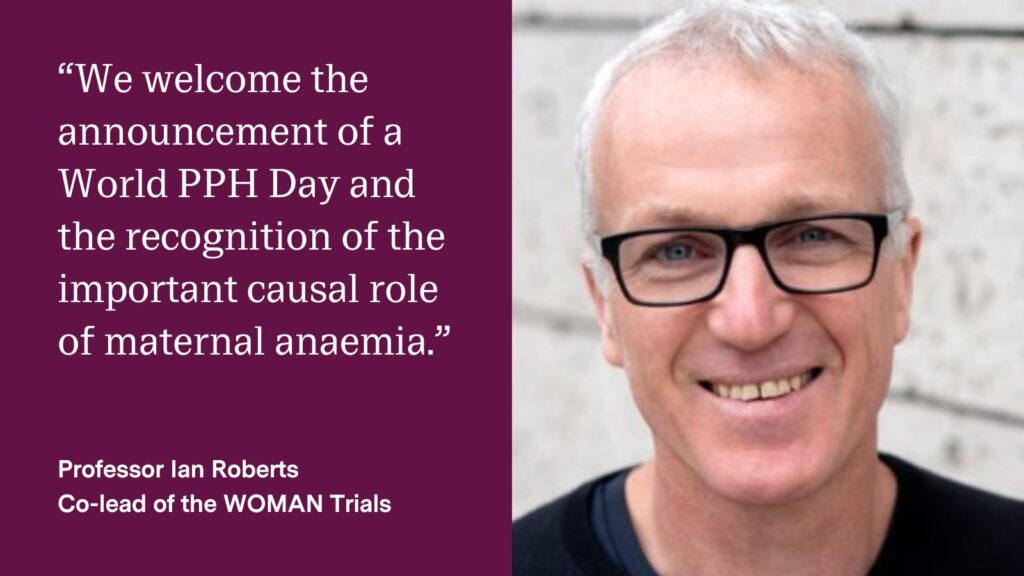Professor Ian Roberts, Co-lead of the WOMAN Trials said:
“We welcome the designation of World PPH Day on 5 October. Far too many women around the world – particularly in low- and middle-income countries – die during childbirth.
“For the past two decades, we have worked with obstetricians and midwives worldwide to answer research questions together that could not be answered by anyone working alone. This global collaboration enabled us to identify the first and only proven lifesaving treatment for PPH – tranexamic acid.
“Working together we have also identified moderate and severe anaemia to be one of the strongest, most common yet preventable risk factors for maternal death.

“We are encouraged to see that anaemia is recognised in new guidelines released by the WHO, FIGO, and ICM, which call for a major shift in how PPH is prevented, diagnosed and treated.
“We note with interest the new diagnostic criteria for postpartum haemorrhage that were announced on World PPH Day. As acknowledged by the WHO, this is likely to increase considerably the number of women diagnosed and treated for PPH.
“The consequences of the new PPH definition for the 30 million women who give birth each year with anaemia requires urgent assessment and in the coming weeks and months we will examine this carefully.”